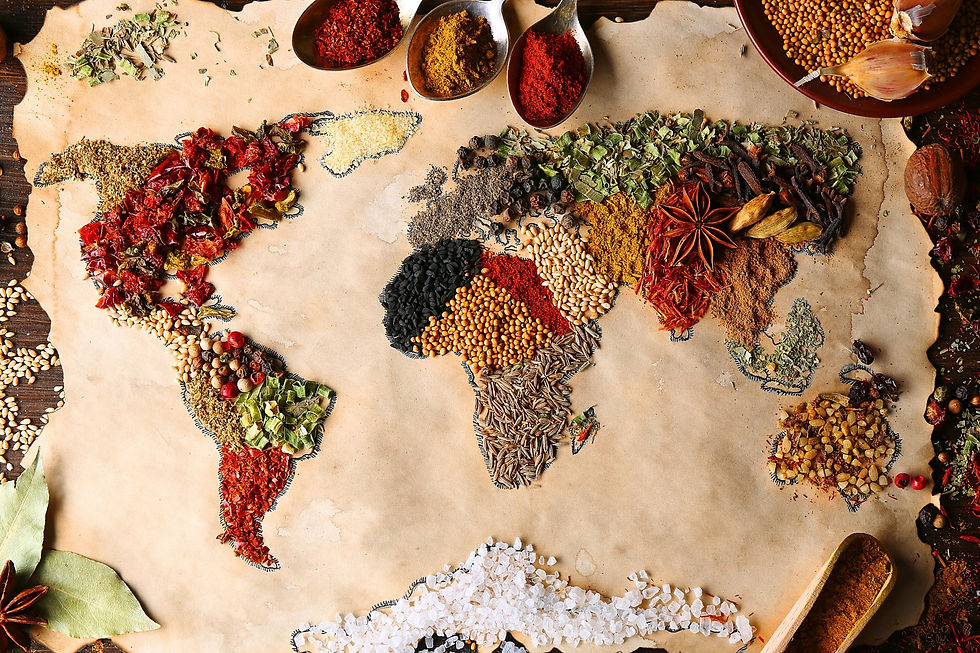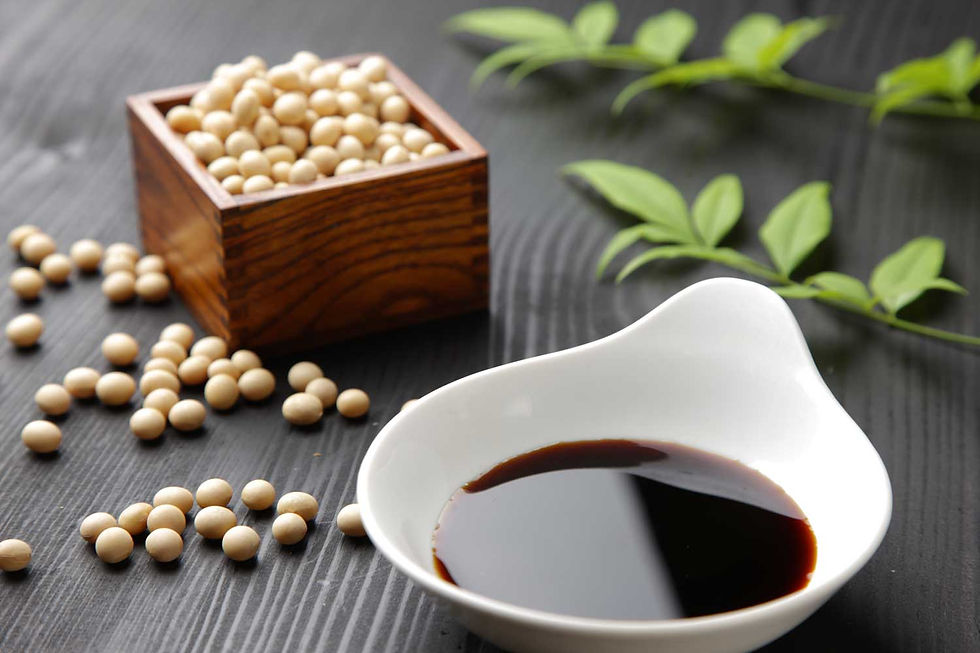The Food You Eat Says A Lot About You
- asciaadubai

- Oct 29, 2018
- 4 min read
Culture and food are interrelated. How? Read on to find out what your meals say about you!

Thanks to globalization, western ideals have become the norm in a lot of countries. There isn’t a country, perhaps other than North Korea, where people don’t wear Levi’s, eats McDonalds, drink Pepsi, listen to Drake, and watch every single movie from the Marvel Cinematic Universe the day it releases. Even North Korea is slowly opening its borders!
Current young generations have identity crises and being a ‘third culture kid’ is not a surprise. This summer the movie Crazy Rich Asians was released. For the first time, a Hollywood movie consisted of an entirely Asian cast. Many Asian Americans on social media said they were brought to tears at the recognition of their culture and traditions on such a mass scale. In fact the director of the movie, Jon M. Chu, had received a three-picture deal from Netflix, but he knew that a worldwide silver screen release was necessary to bring the culture to as many people as possible. The movie was a huge success further affirming the influence that Asia has around the globe and will always have.
Every country has its unique dress, languages, art, music, and literature. But there are some subtleties one will know only see if one pays a visit to a nation.
In every Asian country food and family are of great emphasis in the society. Food is usually the high point of any festival and celebrating with family is a necessity.
CHINA is definitely a food culture. There are a whole lot of bellies to fill! The Chinese eat a huge variety of food, many of which have symbolic implications. The first thing many Chinese ask is "Have you eaten?” Food may be the only thing that surpasses money, when it comes to the question of being important in the Chinese culture. China is one of the older nations existing in the world today, and the part that their cuisine plays in their history cannot be overemphasized. Confucianism heavily influences the Chinese diet, Confucius laid down many dining rules that are still followed today. The driving incentive to earn a better income is to be able to relish more varieties of food. People live to eat.
In INDIA food is placed as top priority at any occasion. It is a famous saying that at a wedding the guests will not remember the decorations, the music, the location or even the bride and groom. People might not drink or smoke, they might not dance, they might not be interested in in other activities of the party, but there is a good chance that they will be interested in food.
They will reminisce about the quality of food that they ate.
Indian food can be generally divided into North Indian and South Indian though each state has its own interpretations of every dish. North Indian cuisines are heavily influenced by the Mughlai style of cooking, which was brought about by rulers from the Mughal era. Most people eat with their hands, a stark contrast to many nations on the globe where not using utensils during meals is considered bad etiquette.
Traditional food is an important aspect of the JAPANese culture and it is considered a world heritage. Thus, a traditional meal not only aims for the taste, but also aims to protect the nature and transmit knowledge to future generations. Seasonal food is important for society, because the diet is based on each season of the year. To stay healthy throughout the year, Japanese children learn important values and skills such as cooperation, teamwork and responsibility in their school lunches during elementary school. A meal in Japanese society goes beyond food, because through a meal people can socialize, build stronger bonds, cooperate, work in teams and help society to develop. It is also a way to thank gods in rituals. Without these traditions and all the varieties of foods available in Japan, the Japanese culture would probably not be the same as it is today.
In THAILAND, food forms a central part of any social occasions—and vice versa. That is, food often becomes the social occasion in itself or reason to celebrate. This is partly due to the friendly, social nature of Thai people, but also because of the way in which food is ordered and eaten in Thailand. There is no such thing as a starter; neither is there any dish that belongs only to one person. As a general rule, Thai diners order the same number of dishes as people present; however, all dishes are shared and enjoyed together. For this reason, it is better to have many guests at the table rather than just one or two. In fact, many Thais believe that eating alone is bad luck. Wastage of food is extremely taboo as it can enrage the Thai “god of rice”, a female deity who watches over the people, ensuring everyone has enough to eat. Bad luck or even widespread famine may then ensue. A typical Thai meal includes four main seasonings: salty, sweet, sour, and spicy. Indeed, most Thai dishes are not considered satisfying unless they combine all four tastes. Thai cooking is one of the fastest growing and most popular of world cuisines today.
When you meet people from various countries every action someone takes exudes the country they identify with. The language they speak, the food they eat, how they eat it, how they treat their peers. In today’s rat race of a world, ethnic cultures are diluted into organizational cultures and/or western norms. But there are still many who hold on to the traditional values today. Every culture has its flaws but the food, art, clothes and language are what make every country distinct.
If YOU are a third culture kid or just someone away from home, try to celebrate your country in little ways, wear the traditional clothes and listen to some classical music and most importantly, start conversations with peers about their country and bring more knowledge to others and to yourself. Make life more colourful.
If you liked this post please share it with your friends!(the share button is at the top of the screen)
Asciaa is committed to guiding you to discover the magic of Asia through food and a little bit of culture.
Reserve your seat now at: https://asciaadubai.wixsite.com/asciaadubai/contact-us
We promise you will have a memorable experience.








Comments